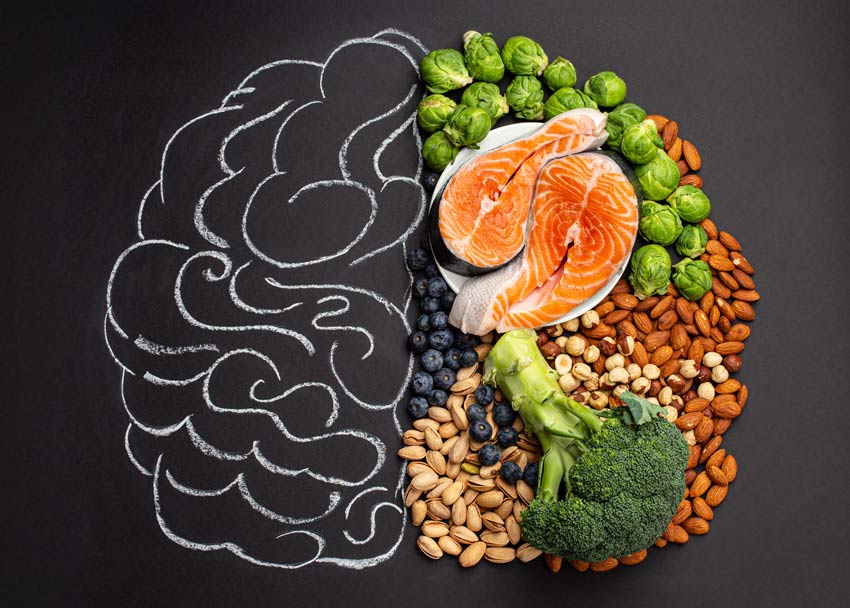For many, March is an eventful month. In addition to welcoming spring, people are encouraged to celebrate poetry, teenagers, potato chips, water, cats, and much more. March is also a month for awareness of various health issues, including tuberculosis, kidney health, multiple sclerosis, and the topic of this post, brain injury.
The Human Brain
The brain is arguably the most fascinating and complex organ in our bodies. It resembles a big, gray shelled walnut and controls everything from breathing to dreams to body temperature to memory.
In this post, we’ll focus on brain injury and brain health in the context of recovery and substance use disorder treatment.
Let’s start with brain injury.
What it is and how it occurs.
It may seem obvious, but a brain injury is any injury that the brain sustains after we’re born. A brain injury isn’t hereditary, congenital, or degenerative (where tissue deteriorates or doesn’t heal on its own). There are two types of brain injuries:
- Traumatic Brain Injury (TBI): can be mild to severe and caused by an external physical occurrence, such as blunt force trauma or hitting the head against something.
- Acquired Brain Injury (ABI): caused by a change in an internal bodily factor, such as oxygen levels or toxins that make their way into the body.
TBI may cause chronic headaches and other bodily pain, reduction in cognitive ability and processing, and higher chances of developing an affective disorder such as bipolar disorder or depression.
Additionally, emotional and behavioral side effects can accompany brain injury:
- Depression
- Mood swings
- Anxiety
- Impulsivity
- Agitation
Traumatic brain injury is most common among the elderly. TBI usually results after a bad fall for people seventy-five and older.
The Connection Between TBI & Substance Use
Perhaps you’re asking what does that have to do with me? What does TBI have to do with recovery from a substance abuse disorder?
Unfortunately, the scientific community has established a relationship between brain injury and substance abuse. While research doesn’t provide strong evidence that TBI leads to substance abuse, it does show that substance use often leads to brain injury. Injuries occur during car accidents, falls, or involvement in violence or violent situations provoked by substance abuse.
Due to this connection, it’s highly possible that an individual may enter residential treatment or recovery programs with a brain injury. Because brain injuries can increase irritability, anxiety, and impulsivity, those in recovery from both substance use disorder and brain injury may have a more challenging time with detox, group therapy, and other recovery activities.
Even for those who do not enter addiction treatment with a brain injury, their brain has suffered damage from substance use. Addiction disrupts brain circuitry and function, and some drugs, like opioids, can interfere with parts of the brain responsible for regulating breathing and heart rate. As someone enters addiction recovery, their brain must be given the support it needs to repair and rebuild.
Helping the Recovering Brain
So, in what ways can we care for our brains in recovery? An article in Psychology Today outlines five steps we can take to care for our brains, injured or not, in recovery.
- Eat Healthy Foods. Fish and fish oil are especially beneficial to the brain because of their omega-3 content.
- Exercise Your Body. When we raise our heart rate during exercise, our brain functions better.
- Exercise Your Brain. The brain is a muscle. Like all muscles, it loves to lift! Rather than numbing the brain with media, try engaging in activities that challenge your brain. You could study another language, do crossword puzzles, invest in different brain training apps, and play memory games.
- Invest in a Pet. Snuggling a pet has been shown to improve mental health.
- Get Your Sleep. Proper brain function is highly dependent on getting adequate sleep. Recovery is hard work, and rest is essential for all aspects of health.
Here at St. Gregory Recovery Center, the virtues of love, hope, and temperance that sobriety develops can guide us to a more balanced, healthy life that supports brain health. Our Recovery Program, including our newly expanded Intensive Outpatient Program (IOP), offers mental health support and whole-person care. We’d love to talk with you about how we can help you or a loved one begin the journey to recovery.
Source:
www.psychologytoday.com/us/blog/the-social-thinker/201909/5-easy-ways-boost-your-brain-health







